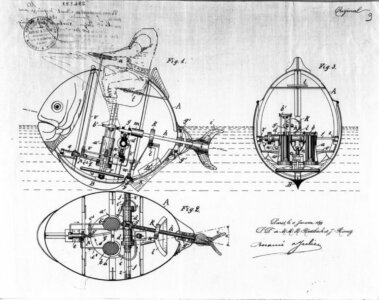Brandon Valorisation regularly supports entrepreneurs in their search for industrial and financial backing. This involves partnering a start-up with a larger company, a “big brother”, in order to benefit from its human, industrial, financial and commercial resources and thus accelerate its development.
This strategy is particularly effective for companies that do not have the means to compete with the major players in their sector and that wish to develop their project in partnership with a company already established on the market. However, it is important to be cautious in this approach and to avoid mistakes that could jeopardize the future of the project.
In this article, Brandon Valorisation highlights 5 common mistakes made when seeking industrial backing, and gives you tips to avoid them.

1. Not or poorly defining your objectives and strategy
Before embarking on any industrial backing process, it is essential to clearly define your objectives and expectations. What do you want to achieve with this partnership? Is it to access new international markets? To have a better visibility thanks to the partner’s brand image? Is it a need for capital? A need for sales force? Or, upstream, is it to complete the product development process? To obtain the means to industrialize it? These objectives must be defined clearly to be able to communicate effectively about your needs during a negotiation with a company interested in the project.
2. Not anticipating the valuation issue
Whatever the objectives set by the company, the question of the company’s valuation will arise in the context of negotiations. Indeed, in the case of industrial backing, the opening of the capital to a partner is done on the basis of a well-reasoned value. Thus, it is important to be able to answer the following questions: what is its financial situation? What are its growth expectations?
Having a financial valuation study carried out by an independent expert, such as Brandon Valorisation, which will explicitly take into account your intangible assets in the value of the company, allows you to be prepared for this kind of questions, but also to have a basis for the negotiations.
3. Starting discussions without a confidentiality agreement
It may seem obvious, but it is always good to remember. The signing of a confidentiality agreement, or NDA (Non-Disclosure Agreement) protects the discussions between the parties. Are you afraid of saying too much in a meeting? You don’t want to be restricted in the discussions by keeping silent about certain essential elements of the projects? The signing of an NDA prohibits the other party from communicating on the content of the discussions. In case of interest, the parties generally agree to sign this type of agreement, and it is also proof of seriousness. If, later on, a partnership cannot be agreed upon, confidentiality is maintained for the entire duration of the contract. A question arises if they refuse to sign such an agreement: is the company really interested in the project or is it only curiosity?
4. Overlooking the importance of corporate culture
Corporate culture is an important element to consider in case of industrial backing. It is indeed necessary that the cultures of the two companies are compatible and that the two companies have common values, otherwise there is a risk of facing difficulties in collaborating, and frictions may occur which, in the long term, damage the chance of success of the partnership.
Our advice: rather than rushing into the most advantageous partnership from a financial or image point of view (when you have a choice), it is important to assess the proposal in its entirety by taking into account these values. A company with which you share the same vision may be able to bring you much more in the long run!
5. Lack of transparency
Many entrepreneurs hope to enhance their company image and encourage the signing of the partnership by embellishing reality beyond what is reasonable (whether at the level of contracts signed, customers, negotiations in progress, etc.). In our view, it is hazardous to use that strategy since it does not allow to create a trusting relationship with the future partner.
What will you do if the contract or agreements you have highlighted are eventually not signed? The company you are negotiating with will find out during the due diligence phase, and there is a risk that the negotiations will be grounded to a halt or turn badly because of the resulting loss of confidence. Remember that your interlocutor is also taking a risk in this partnership project, and it is up to you to show him that you are a reliable partner with whom he can work and build something. It is better to be clear and loyal in case of difficulties and show that you are looking for solutions rather than sweeping them under the carpet, imagining that they will not resurface.
Regular communication with the company throughout the process will allow you to answer all questions as they arise and thus avoid misunderstandings or unpleasant surprises.
In conclusion, industrial backing can be an effective strategy to enable a company to grow. But it is important to be well prepared before starting any process and to have a clear vision of your objectives. This is why it is a good idea to be accompanied by an experienced advisor with which you can discuss in complete confidence and find answers.
Would you like to learn more about industrial backing and prepare yourself as well as possible before you start? Our teams are available to answer all questions: brandon@brandon-valorisation.com or +33(0)1.44.54.11.30.
Photo license: Unsplash




